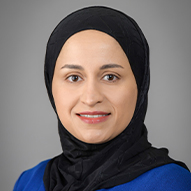Dallas
214-456-2980
Fax: 214-456-8042
Plano
469-497-2501
Fax: 469-497-2507
Children’s Health is one of the few hospitals in the United States to use this specific kind of glomerular filtration rate (GFR) test procedure.
Our own experts developed the Glofil test to measure how effectively kidneys can filter blood. Leaders in the field recognize this test as the gold standard for testing kidney function.
214-456-2980
Fax: 214-456-8042
469-497-2501
Fax: 469-497-2507
The kidneys contain glomeruli, tiny filters that remove waste from your blood. A GFR lab test measures how much blood the kidneys filter every minute. Glofil is a specific kind of GFR test. The test uses a tiny amount of a special radioactive medicine to measure kidney function.
Your child will have GFR kidney function testing in a comfortable area where our team makes sure you and your child have everything you need. The results help your child’s doctors understand how to plan the next steps for your child’s care.
A Glofil is a GFR test, which means it provides a clear, definite assessment of your child’s kidney function.
Some kidney testing uses estimated glomerular filtration rate (eGFR). Because that test is an estimate, however, an eGFR test provides only a snapshot of kidney function.
A Glofil test is not an estimate. It tells your doctor exactly how your child’s kidneys are working.
Your child’s doctors use this information to make important decisions about your child’s care. Glofil results help your doctor determine precise dosages of medications for conditions such as kidney disease or cancer.
Your child may have Glofil testing as part of their care for:
A Glofil test is very safe. It doesn’t have any known side effects.
The risk from a GFR test is extremely small. Your child might feel a little sore where the IV (intravenous line) goes into their skin.
We do Glofil kidney function tests in our nephrology department at Children’s Medical Center Dallas. The Glofil test takes a total of six to eight hours from start to finish, depending on your child’s needs and previous testing.
Before the Glofil test, we give your child super-saturated potassium iodide (SSKI) drops. These drops protect your child's thyroid gland from the radioactive portion of the medicine we inject during the study.
For the Glofil test, we place an IV catheter (a small tube) in your child’s hand, arm or foot. The IV lets us use just one needle poke for the whole day. If your child has a working peripherally inserted central catheter (PICC) or central line, we use that line instead of placing an IV.
The Glofil test starts in the morning with these steps:
After this first stage of the Glofil testing, you and your child may leave the area for lunch or other appointments. Your care team will tell you when you need to come back – usually within four to six hours.
When you return, we take three more blood samples through the IV, 30 minutes apart. Then we carefully remove the IV and put a bandage on the puncture spot.
Your child doesn’t need to do anything special after the exam. They can return home and go back to their usual activities.
Let your child know that you’ll need to spend the whole day (six to eight hours) at the hospital, but they will be having tests for only a small part of that time. Your child should wear comfortable clothes. You can bring along books, games, homework or whatever you and your child need and want for the day. You will stay with your child the whole time.
Your child can eat and drink as usual before a Glofil test. It is very important that your child arrives well hydrated for the GFR kidney function test. Please give your child water before leaving home, upon arrival and throughout the day. Water is available in the testing area, or you may bring your own. Sports drinks and sodas are not recommended. Flavored water is OK. Hydration will greatly help with IV placement. It also helps prepare your child’s kidneys so we can measure their actual function.
Please have your child drink plenty of water for several days before the test. Keep drinking water before you leave home, when you arrive at Children’s and throughout the day. Water is available in the testing area, or you may bring your own. Flavored water is OK to drink. We don’t recommend sports drinks, sodas or other sugary drinks.
If your child is receiving other medical care that could involve radiotracers, please note that your child should not have iodinated contrast media for 24 hours before the Glofil exam.
You may want to ask your provider:







Yes. The Glofil tracer contains only a very small amount of radiation that shouldn’t have any negative effects on your child’s health.
The main discomfort your child might feel during the Glofil test is a needle poke when we place the IV. We numb the area first, and we do this only once. Then we use the same IV catheter to draw blood throughout the day.
Yes. You and your child may bring food, drink, homework, computers and toys. USB ports, Wi-Fi, cable television, movies and games are available while you wait.
You can leave the testing area for lunch and other appointments in the hospital, as long as they don’t interfere with the scheduled blood draw times. Your team will give you a list of these scheduled times so you can plan your day.
Your child’s doctor will receive your child’s Glofil results in less than 24 hours. The results will be available in your child’s medical record. In urgent situations, we call your doctor immediately with the results.